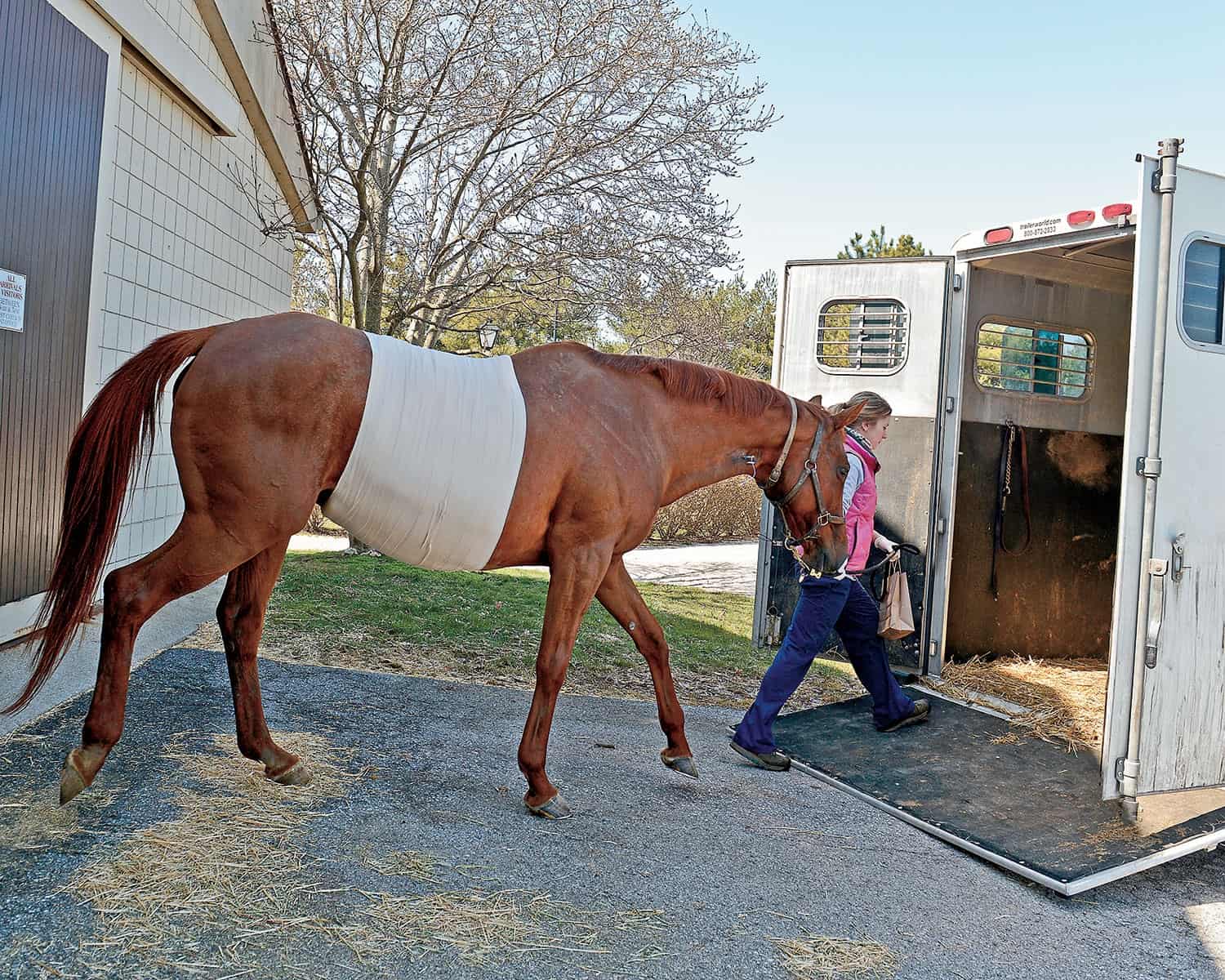Caring for the Equine Colic Survivor

Special maintenance and nutrition can help your horse get back to (and stay in) good health after a colic episode
Ouragan was in a critical state. Four days after colic surgery, the regional show jumping champion was suffering from postoperative ileus (a lack of gut motility) and facing a mere 5% chance of survival. To make matters worse, Ouragan (French for “Hurricane”) reacted to his hospital surroundings with severe stress. The 12-year-old half-Thoroughbred was naturally high-strung, and being confined to an unfamiliar stall and surrounded by foreign sights, sounds, and smells pushed him beyond his limits.
But one thing calmed him—his owner. Every day after work and on weekends, Claire Boillin, of Auxonne, France, would make the 200-km (124-mile) drive to see Ouragan at the clinic. It provided a moment of relief for the horse, as well as the staff.
“He wouldn’t sleep and just kept refluxing (expelling fluid when veterinarians tubed him), and I was sure he wouldn’t make it through the night,” she says of that pivotal fourth day in his healing. “When I went in his stall, he was so exhausted, he just lay down. I sat next to him and put his head on my lap, and he fell asleep TheHorse.com is home to thousands of free articles about horse health care. In order to access some of our exclusive free content, you must be signed into TheHorse.com. Already have an account?Create a free account with TheHorse.com to view this content.
Start your free account today!
and continue reading.

Written by:
Christa Lesté-Lasserre, MA
Related Articles
Stay on top of the most recent Horse Health news with












